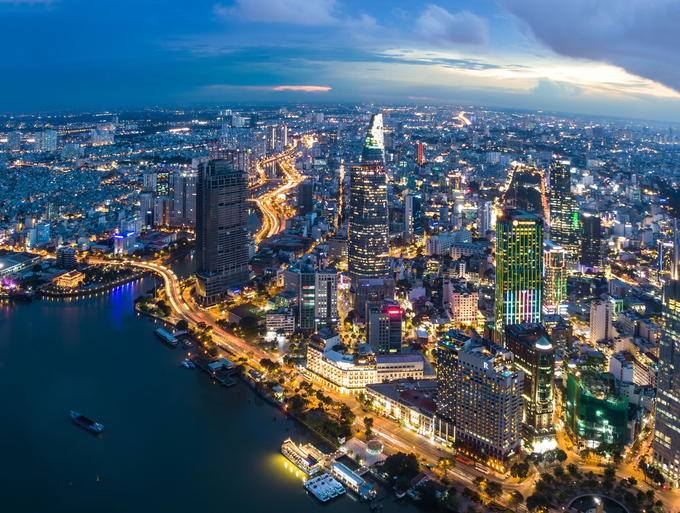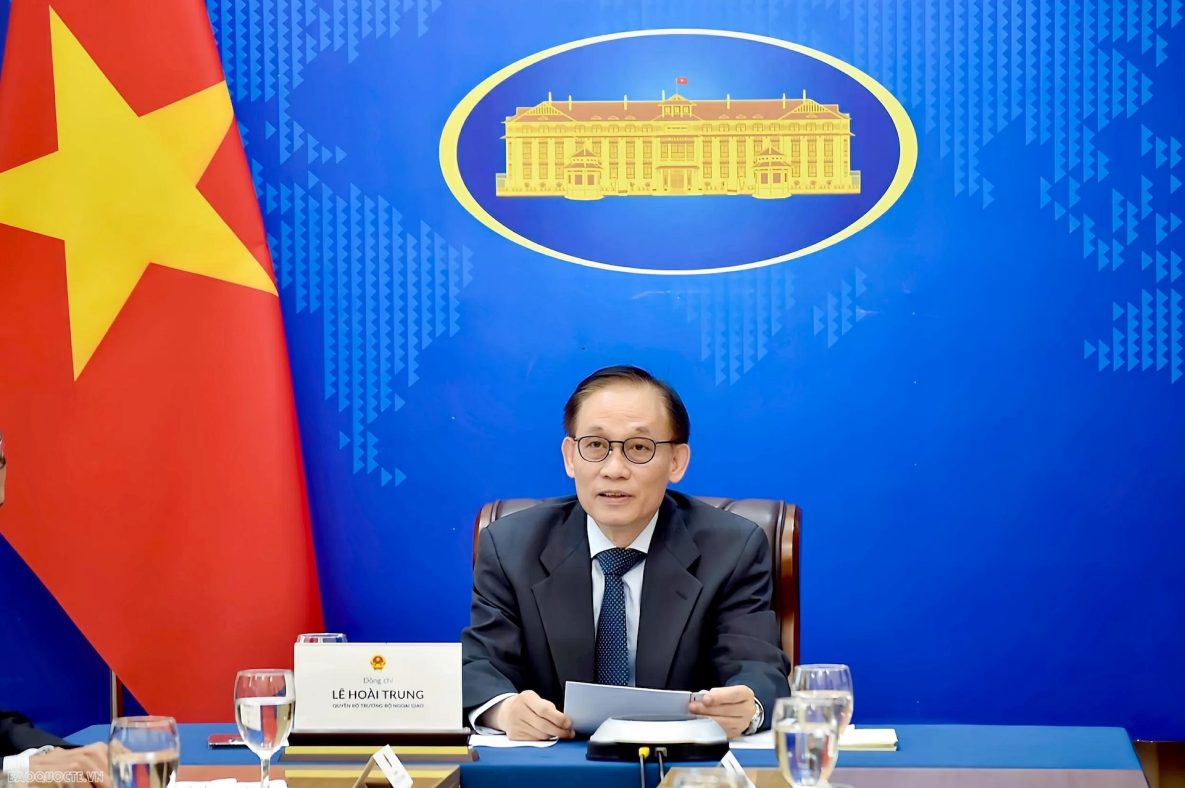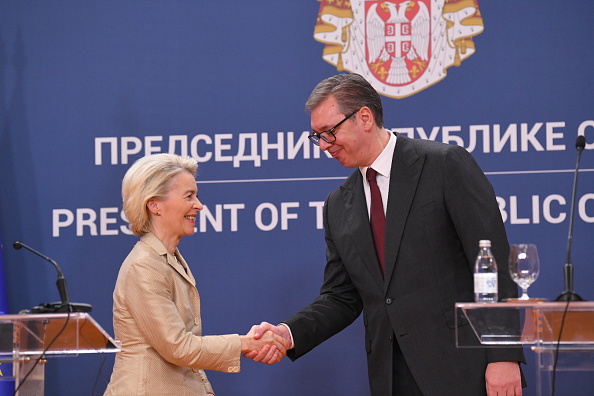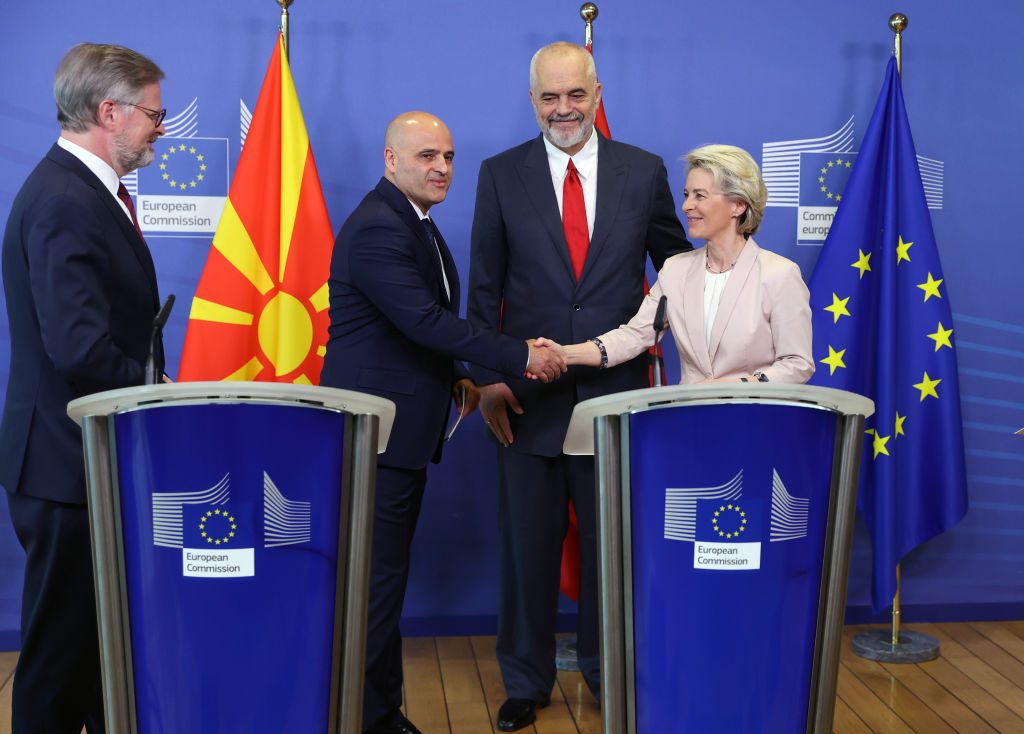EU Enlargement: The overlooked factor in the EU’s 2040 climate targets
How will new EU members' unique energy starting points—particularly those that are highly dependent on fossil fuels or have outdated energy infrastructure—impact the Union’s overall ability to meet its 2040 targets?

While ongoing discussions about the EU’s 2040 energy and climate targets have sparked numerous debates regarding social impact, economic distributional effects, and the industrial needs to meet them, an overlooked element could significantly influence these objectives—the EU enlargement process.
Andrei Covatariu is a Research Fellow at the Centre on Regulation in Europe. Camille Defard is Head of the Jacques Delors Energy Centre
The 2022 energy crisis raised critical questions for the EU and its energy transition ambitions. It prompted the Commission and its Member States to increase their decarbonization goals to reduce high levels of fossil fuel import dependency.
Consequently, the 2030 energy and climate targets were increased, and the envisaged, highly debated 2040 targets were also enhanced.
Although EU accession ambitions have traditionally represented economic growth opportunities and highly desirable political goals for neighboring states, the context brought by the 2022 Russia-Ukraine conflict has accelerated these needs.
Equally, it has demonstrated how non-EU member states’ challenges can easily spill over into EU countries, contributing to higher energy prices.
Currently, several countries have achieved EU ‘candidate’ status, meaning they are reforming their national laws to align with EU rules, regulations, and norms.
This list includes Albania, Bosnia and Herzegovina, Montenegro, North Macedonia, and Serbia in the Western Balkans, as well as Georgia, Moldova, and Ukraine, which received this status over the last years.
Kosovo currently holds ‘potential’ candidate status, having applied for candidate status at the end of 2022, while Turkey has its negotiation process frozen, although the EU still lists the country in the ‘candidate countries’ section.
EU30+ energy and climate challenges
As part of the accession process, prospective Member States are required to gradually adhere to the EU’s energy and climate goals.
While the requirements to join the EU and the EU’s role in the integration process (including through its next multiannual financial framework) are important to discuss, the impact on the Union’s energy and climate goals has not received sufficient attention.
How will new Member States’ unique energy starting points—particularly those that are highly dependent on fossil fuels or have outdated energy infrastructure—impact the EU’s overall ability to meet its 2040 targets?
Moreover, as Ursula von der Leyen remains committed to the 90% emissions reduction target for 2040—a goal that will affect both prospective and current members—the enlargement effect on these targets has not been adequately assessed.
Further concerns are raised about how fit the present EU framework is to handle such diverse energy profiles, and how the EU plans to ensure fair transitions for these nations without sacrificing their economic development on one side, and the European bloc’s 2040 goals, on the other.
Given the importance of these goals, but also considering their long implementation time, could these aspects prolong the accession process? And if so, for which of these prospective members? Furthermore, will rigorous adherence to the determined targets be non-negotiable?
The enlargement process would also raise important questions about the EU’s energy market design, as well as its emissions trading system. Successful integration of new members would require them to conform to the EU’s energy market frameworks while also tightening rules to address negative externalities.
Another key element of a future EU enlargement process is cross-border transmission infrastructure and critical infrastructure upgrades, already pressing issues within current EU borders. Increased interconnection levels and a resilient energy network backbone system are essential conditions for ensuring high security of supply in an expanded EU.
Lastly, the EU needs to consider the role of enlargement in its targets, both endogenously and exogenously.
Could potential and relatively imbalanced energy transition efforts of current EU Member States, in comparison with candidate countries, lead to internal tensions within the Union?
Equally important are the geopolitical effects generated by the enlargement process.
In light of last years’ struggles to maintain and rebuild the EU’s energy and climate diplomacy, will delayed accession processes, for energy-related reasons, challenge the EU’s leadership role even further?
The prospect of EU enlargement has also sparked debates about the need for institutional reforms, particularly concerning the EU budget and decision-making processes. These transformations are crucial for ensuring that the EU, even at an expanded EU30+ level, can implement and deliver an ambitious, orderly, and just Green Deal.






